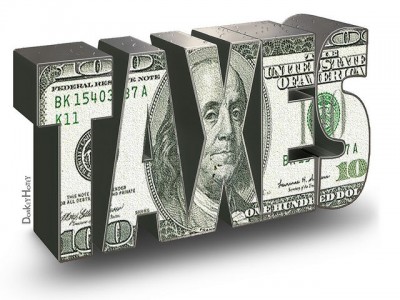If you take on the IRS in Tax Court, you’ll have a better chance of prevailing if you come prepared and can provide supporting evidence for your point of view. On the other hand, as shown by a new case, you have almost zero chance to win if you don’t even bother to appear (Peake, TC Memo 2016-231, 12/21/16).
The taxpayer’s actions in this case – as well as his lack of action – are virtually a primer on what “not to do” when contesting a tax case.
Here are the key facts: The taxpayer, a resident of Maryland, formed a management group to represent professional athletes, a firm to provide his personal services to professional athletes and a construction firm. For the tax years in question – 2002 through 2007 – he received income from the personal services firm consisting of cash withdrawals; checks issued and/or account transfers from the firm, his family and third parties; and distributions from the personal service and construction firms that were labeled as loans.
The taxpayer did not have any federal income tax withheld for any of the tax years in question. Nor did he make any estimated tax payments with respect to any of those years.
Cash distributions made to the taxpayer were in amounts of less than $10,000 each. The taxpayer made false entries in the books to disguise payments or omitted to record transactions. No Forms W-2 or 1099 were issued to the taxpayer reflecting the payments or the purported loans. Although he obtained the services of a CPA for several tax years, the taxpayer has not filed a federal tax return since 2000.
In 2011, the taxpayer entered into a plea agreement in which he pleaded guilty to tax evasion for 2004 and conspiracy to commit bank and wire fraud. The IRS issued deficiency notices for 2002 through 2007.
Despite repeated attempts by the IRS’ counsel to prepare the case for trial or to attempt to settle it, the taxpayer has been completely unresponsive. The case was called from the calendar for the trial session beginning on February 8, 2016 in Baltimore. IRS counsel appeared and filed a motion, but there was no appearance by or on behalf of the taxpayer, nor did the taxpayer or any representative appear at an evidentiary hearing.
The Tax Court found that the IRS established by clear and convincing evidence that the taxpayer evaded tax from 2002 through 2007. In doing so, the Court noted that the taxpayer—
- Failed to maintain adequate books and records as required by the tax code and regulations;
- Received substantial cash withdrawals;
- Structured cash withdrawals so that each was in an amount less than $10,000 in an attempt to avoid certain reporting requirements;
- Knew that he was required to file returns, but willfully did not file returns;
- Consistently and substantially understated income;
- Was convicted for tax evasion with respect to tax year 2004;
- Was convicted of conspiracy to commit bank and wire fraud;
- Completely failed before the February 8, 2016 Baltimore trial session to cooperate with IRS counsel to prepare this case for trial or to attempt to settle it; and
- Failed to appear at the call of this case from the calendar for February 8, 2016.
Sometimes taxpayers get into a bind, but there’s no reason to make things worst by failing to observe the rules for court proceedings. The best thing a taxpayer can do is rely on a qualified professional advisor for guidance.
Thanks for reading CPA Practice Advisor!
Subscribe Already registered? Log In
Need more information? Read the FAQs




